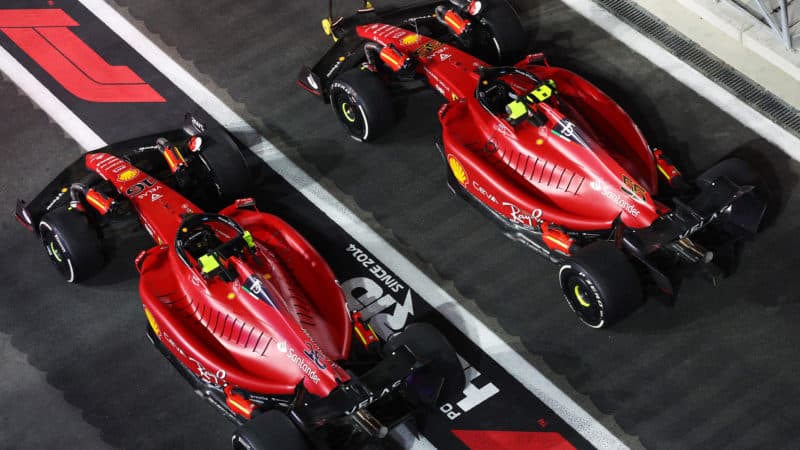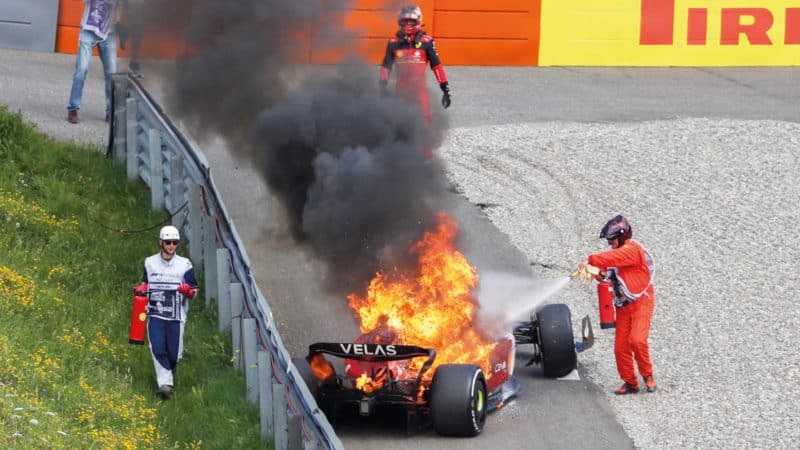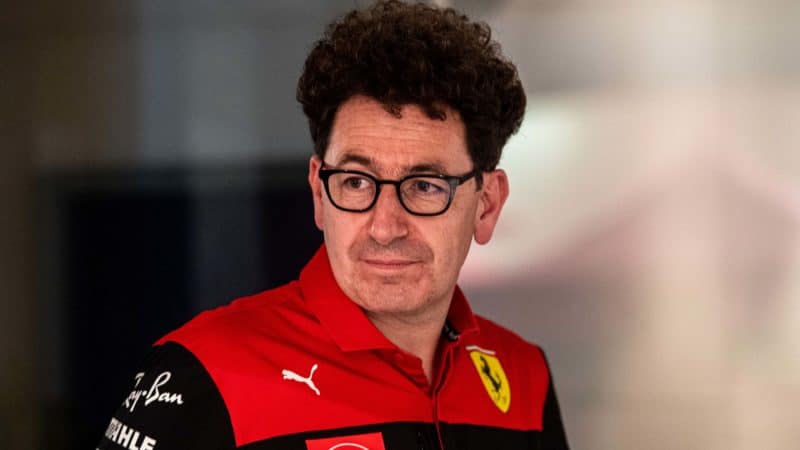It was then struck with reliability problems. And because it’s Ferrari the spotlight’s on you, then the pressure errors start coming and coming.
Creating the fast car is by far the most difficult part and Mattia Binotto has now twice led the team into doing exactly that, first as a technical boss in 2017/18 and now as the overall boss. It’s been done, what’s more, with real creativity, by following its own technical path quite different to that prevailing elsewhere. That is gold dust and something which for years, post the Ross Brawn/Jean Todt era, had been assumed to be beyond the team’s capabilities.
Binotto’s successes have come from building up the people already there, creating the environment in which they didn’t fear the consequences of failure. Prior to his promotion to team principal, there had been a clash between the environment he had created in the technical department and the old-school Ferrari run by fear in the racing department. His appointment as team boss resolved that.

Creative flair was on show in Ferrari’s F1-75
Clive Rose/F1 via Getty Images
The race team clearly has fundamental problems with how decisions are taken at the track and they have been there for years. You remember Fernando Alonso essentially dictating strategy from the car and you remember Sebastian Vettel doing it. [In one example, Vettel was told to pit at the 2016 German Grand Prix. “Who are we trying to undercut,” he asked. “Verstappen,” came the reply, even though the Red Bull was 8sec up the road and well out of range. “No, I’ll stay out another couple of laps,” said Vettel].
They’re such basic things that they can’t just be because somebody hasn’t understood something. It can only be because they’re overloaded in the moment, with too many things coming at them.
The way of eliminating them is the same as it was in the technical department: stability over a number of years, protecting the people doing the work, identifying the root of the problem and attacking that as a group rather than the person.
Binotto has fixed the creative bits and that’s remarkable. But the underlying culture bit is still there. And that’s ultimately why he’s being made the scapegoat, rather than Ferrari supporting him, and helping to put it right.

Flaming Ferrari: reliability issues were devastating for title bid
After Binotto, Ferrari will just say, “Right, next”. If the new guy is really good, he will be there for a while but he will ultimately be fired. And if he’s not very good, he will not be there for very long before he’s fired. That’s just how it is. Until the culture above the team changes, the same thing is going to keep happening.
The only time it hasn’t been structured like that was in the Jean Todt/Ross Brawn era. And look what happened: it became the greatest team ever been seen in F1 up to that time. Before then it massively underdelivered on its potential. After then it massively underdelivered on its potential. The correlation is there and I can’t help thinking it’s causation also.
Part of the problem is that Binotto is a product of Ferrari and had been there since he graduated from university. You cannot do that job as an employee — you’ve got to be the boss. That’s what Brawn and Todt were. They formed this force field around them, those two and Michael Schumacher, knowing that they were the best at their jobs in the field. And they just said, ‘Leave us alone, tell us the budget, leave us alone’.
It’s not so much who the person is, it’s how they are empowered once they’re there. And I don’t think that realisation has hit the people above the team principal role. If they do accept that, then they accept it’s their fault. They’re not going to do that.


